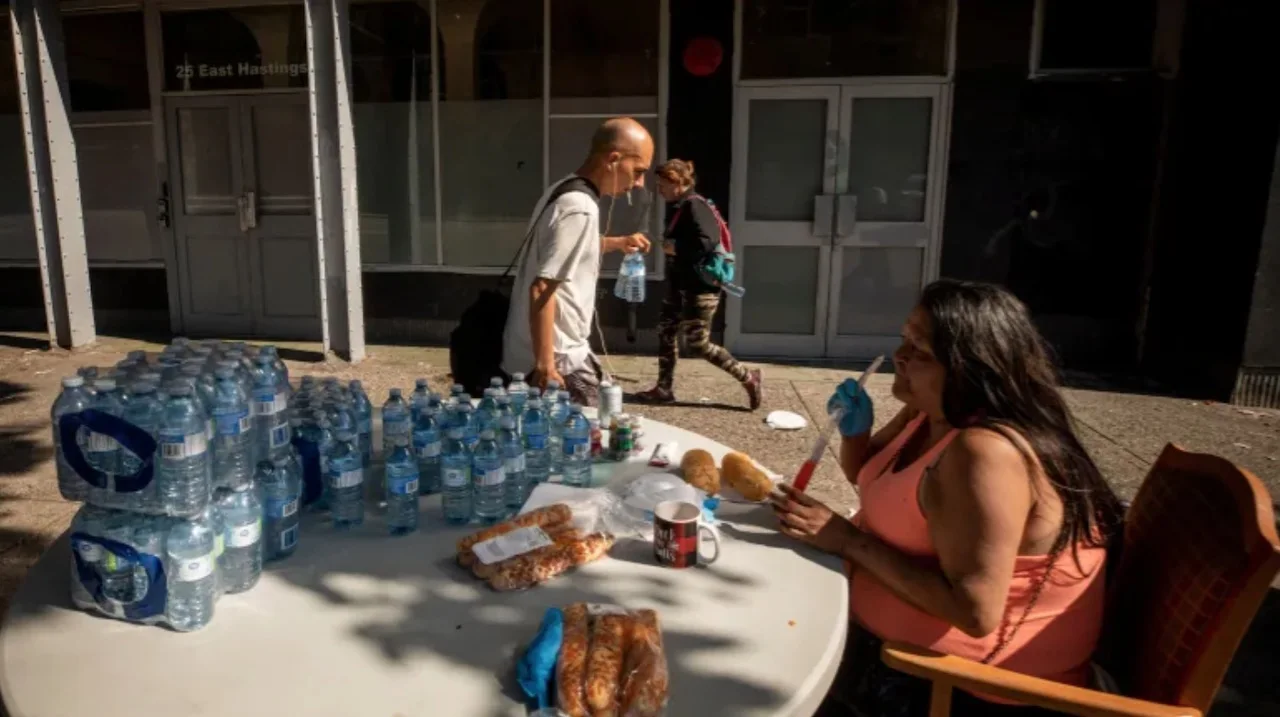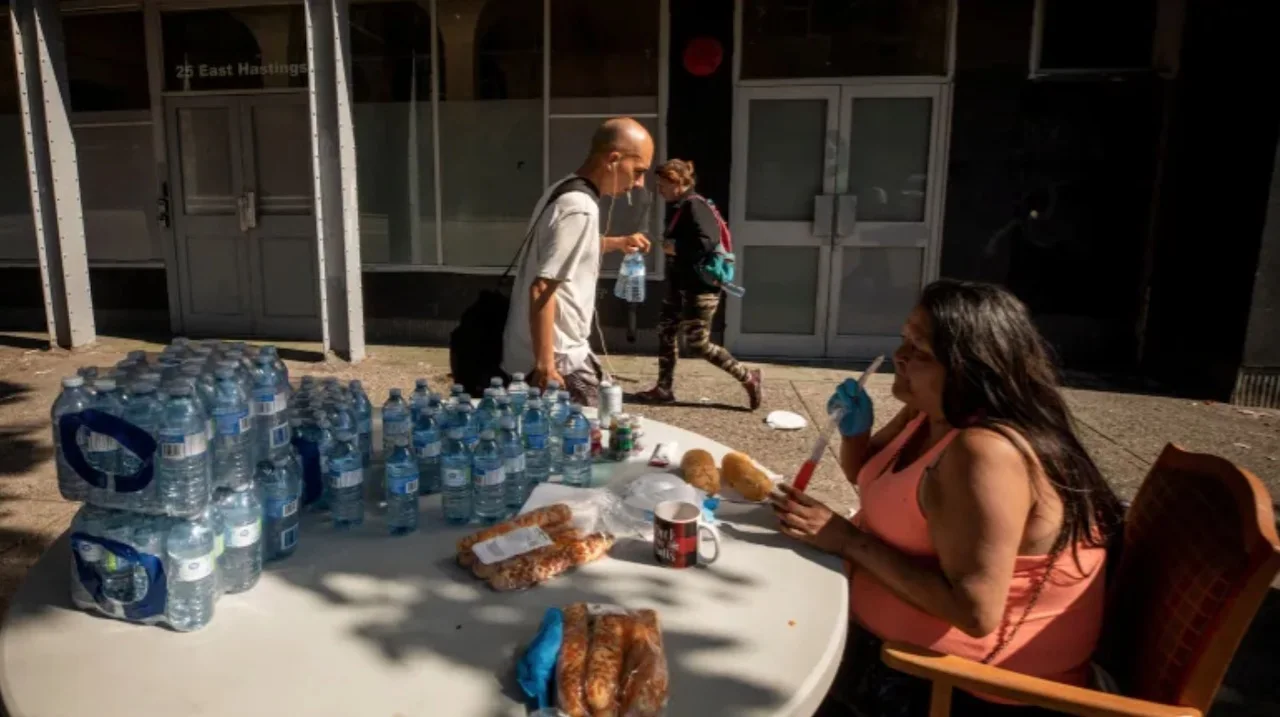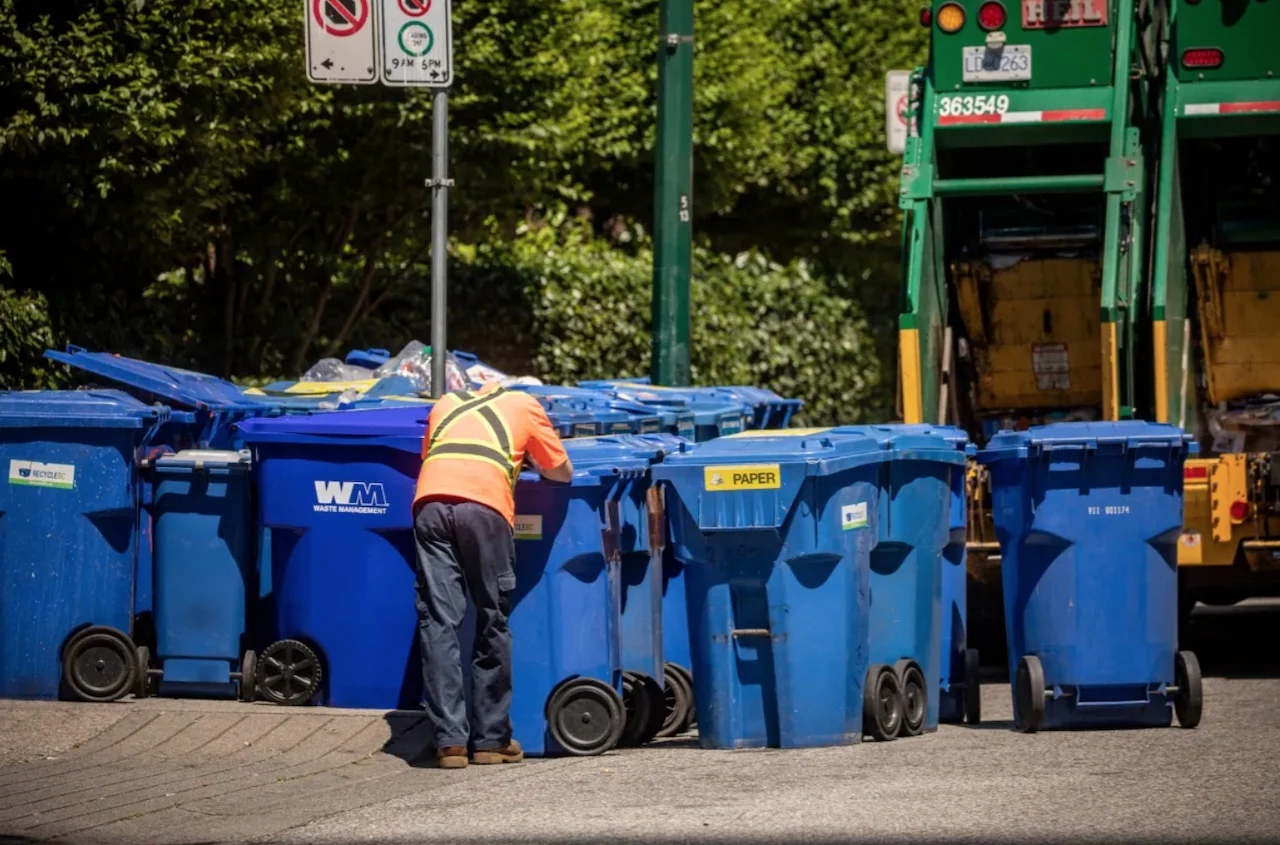
Rise in sudden deaths reported as blistering B.C. heat wave continues
Police in Metro Vancouver say they've responded to more than 100 sudden deaths since an extreme heat wave took hold in the province, and the danger is expected to continue in the face of unrelenting heat still in the forecast over the next several days.
By Tuesday afternoon, Vancouver police said they had been called out to more than 65 sudden deaths since the temperature began spiking on Friday. Twenty of those deaths were reported on Tuesday before 1:45 p.m. PT — a typical day sees just three or four sudden deaths in the city.
"Vancouver has never experienced heat like this, and sadly dozens of people are dying because of it," police spokesperson Sgt. Steve Addison said in a news release.
RELATED: B.C. village scores hottest temperature hat trick no Canadian wants
"Our officers are stretched thin, but we're still doing everything we can to keep people safe."
He said officers are being redeployed from the police department's investigation division to respond to the crisis, and other officers are being called in from home.
RCMP in Burnaby, B.C., said earlier Tuesday its officers received 25 calls for deaths since Monday alone. Official causes of death have yet to be determined, but a statement said officers believe the majority are linked to the severe weather.
"Heat is believed to be a contributing factor in the majority of the deaths. Many of the deceased have been seniors," Cpl. Mike Kalanj wrote in a statement from Burnaby.
"We are seeing this weather can be deadly for vulnerable members of our community, especially the elderly and those with underlying health issues. It is imperative we check on one another during this extreme heat."

A woman who goes by the name ChillyBean hands out bottled water to residents in the Downtown Eastside neighbourhood in Vancouver on Monday. (Ben Nelms/CBC)
RCMP in nearby Surrey saw a similar story. It said its officers responded to 20 deaths on Monday and 18 by mid-morning on Tuesday. Usually, the detachment says it receives just five calls per day of that nature.
233 DEATHS OVER A FOUR-DAY PERIOD
The BC Coroners Service says there has been a significant increase in deaths since Friday, with extreme heat suspected to have played a fatal role.
Normally, there are 130 deaths reported in B.C. over a four-day period. Between Friday and Monday, however, there were 233 deaths reported deaths in the province.
"I extend my condolences to those who have lost a loved one during this unprecedented time," said Lisa Lapointe, B.C.'s chief coroner.
"Coroners are carefully gathering all information available for each death reported, to determine the cause and manner of death, and whether excessive heat played a role."

A waste collector takes a break while loading recyclables into his truck in Vancouver, British Columbia on Monday. (Ben Nelms/CBC)
'HEAT DOME'
Police in Abbotsford and Victoria said they had also received more calls than normal, but could not provide precise figures.
The "heat dome" responsible for record-breaking temperatures in B.C. has gripped the province since Friday. Temperatures were the most severe on Sunday and Monday, shattering more than 100 temperature records across B.C.
The heat is especially dangerous because it has remained warm through the night, offering no relief or recovery time. Many homes in B.C. do not have air conditioning as summer temperatures are typically far milder.
Extreme heat warnings remain in place over much of Western Canada as the heat wave moves eastward toward Alberta and the Northwest Territories.
Environment Canada has warned more records will be broken in B.C.'s Interior on Tuesday. The village of Lytton registered the highest temperature ever recorded in Canada, 47.9 C, on Monday.
B.C.'s South Coast is expected to see some relief Tuesday as marine air flows in from the Juan de Fuca Strait and temperatures drop by a few degrees. But they remain close to 10 C above normal temperatures for late June.
The elderly, children, outdoor workers, homeless people and those with pre-existing medical conditions are all at greater risk of heat-related illness and death.
The extreme temperatures led to a spike in 911 calls over the weekend, according to B.C. Emergency Health Services. Ambulances responded to 187 calls related to heat exhaustion and 52 related to heat stroke between Friday and Monday.
The B.C. Coroners' Service has said it cannot provide any information on deaths linked to the heat wave as those investigations would still be in the early stages.
Meteorologists watching the extreme weather event have linked it to climate change and a warming planet.
STAYING COOL IN EXTREME HEAT
Avoid the direct sun as much as possible
Plan to spend time in a cool, or air-conditioned place, such as a library, a mall or even a movie theatre if you can
Drink a lot of water, even before you feel thirsty
Avoid strenuous activity and exercise
Avoid sunburn and wear sunscreen with SPF 30 or higher on exposed skin and an SPF 30 lip balm
Wear lightweight, light-coloured, loose-fitting clothing and a wide-brimmed hat, or use an umbrella for shade
The story was originally published on CBC News.










